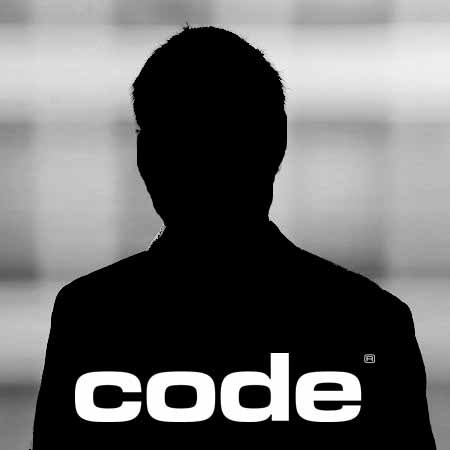Coseco Modernizes Mass Transit Ticket Scanning Terminals
Coseco Modernizes Mass Transit Ticket Scanning Terminals
Dutch Firm Deploys Code's CortexDecoder to Scan QR Code Bus Tickets
Nepalese rupee. Vietnamese dong. Philippine peso.
Regardless of country, it's a universal truth that waiting to board a bus costs money. Well, queuing up for a bus doesn't actually cost money. Rather, it represents an opportunity cost that disproportionately affects millions of students and low-income workers in Southeast Asia who require public transit. Lengthy bus loading times have a domino effect—minutes lost to riders fumbling for payments often lead to late busses, missed connecting rides, jobs lost, and exams failed.

The Netherlands-based Coseco BV, an impact digital services enabler, sought to streamline boarding by developing ticket payment and boarding tech based on the suddenly ubiquitous QR barcode.
"We constantly evolve payment solutions not only to keep up with technology but, more importantly, to help improve commuters' quality of life," states Patrick Henzen, Coseco founder and CEO. "With QR codes, we empower passengers to take back a fraction of their time usually spent lining up."
Waiting has ripple effects. A study on productivity conducted by Budget Direct, an Australian insurance firm, found that gridlock is costly. In Manilla, Philippines, for instance, traffic idles drivers for 188 hours (about 7.8 days) per year. The opportunity costs average roughly P56,000 ($1034.93 or €948) annually—a loss undoubtedly felt harder by low-income passengers stuck on already-late busses.
So how did Coseco leverage the QR code to streamline bus rides for millions?
Now Departing: Code's QR Scanning Boards the Bus
Coseco helps organizations embrace digital technology for traffic and transportation management; it also specializes in safe, contemporary customer payment methods. Based on Coseco's successful track record, several bus operators across Nepal, Vietnam, the Philippines, and Sri Lanka sought to modernize and expedite ticket payment by eliminating on-bus cash payments. Using QR technology, commuters can use their smartphones' e-wallets to generate a single-use QR ticket in lieu of a physical smart card. Spur-of-the-moment riders may purchase a QR code-emblazoned paper ticket at a bus terminal or online and print it at home. Boarding then becomes a simple matter of QR scanning that saves riders time and protects profits.
"Ticketing and electronic payment in bus-based public transport systems is an important upgrade that decreases pilferage by drivers and conductors," Henzen shares. "It also increases the service reliability and transport quality for operators while improving dependability and convenience for passengers."
Unsurprisingly, mass transit drivers face mass distractions—Southeast Asia's roads teem with manic mopeds, fearless pedestrians, and too-bold tuk-tuks. So offloading drivers from collecting fares frees them to focus on safety.
On the surface, it would make sense to retrofit buses with new QR-compatible payment terminals. But Coseco was tasked with minimizing costs by building a new solution with the existing terminals.
"[Our solution] had to work with the existing infrastructure to upgrade functionality," Henzen recalls. "Since none of the terminals had provisions for hardware-based QR scanners and the devices' cameras alone were not of sufficient quality to scan QR tickets reliably, we looked for a solution and found Code."
Code's CortexDecoder Tackles Transit Ticketing
Given the project's price-sensitive parameters, Coseco employees scoured their professional networks for a solution that would fit. One of the firm's partners had integrated Code Corporation's Code CortexDecoder Software Development Kit (SDK) into their offerings and suggested Coseco contact Code.
Ultimately, Coseco evaluated and selected the CortexDecoder SDK, which enabled the team to significantly lower deployment costs while providing reliable QR code scanning.

"Instead of terminals and validators with high-end hardcode barcode scanners, we can now use lower-cost validators with cameras and get the same barcode scanning results for our customers," Henzen proudly says.
CortexDecoder offered Coseco a robust price-to-performance ratio because it rapidly (and successfully) reads QR codes on smudged, oily, cracked, or droplet-coated smartphone screens. This performance was critical because many Asian nations have begun relaxing COVID-19 travel restrictions. Now, ridership is on the uptick, and so is QR code adoption because of pandemic-fueled preferences for contact-free payments. These conditions made partnering with Code a no-brainer.
"With Code, you can now go cardless and purchase QR tickets straight from an enabled mobile app," Henzen explains.
Despite an increasing reliance on e-wallets, impromptu ticket purchases at a transit hub or online bookings at home mean there will still be paper ticket-wielding passengers.
"The actual tickets printed at home and presented to the validator might be faded and crumbled," Henzen explains. "This creates additional challenges for reading tickets reliably and fast."
Thanks to Code's patented Code's Dual-Field Optics, CortexDecoder-equipped terminals readily handled paper tickets in virtually any condition during testing. This superior barcode scanning allowed Coseco to proceed confidently in upgrading ticket terminal scanning with Code.
Maintaining a Fair Fare for Riders
Behind these refreshed QR-based Coseco Transport Ticketing Terminals is the full weight of Coseco's expertise gained while working with transport firms in emerging economies. Through CortexCoder, Coseco extracted superior QR code scanning from existing low-cost, camera-equipped validators while guaranteeing high-quality service to operators. This success illustrates that Coseco excels in maintaining operating costs for transit firms coping with mercurial gas prices and ongoing parts shortages. After all, many mass transit systems technically run at a loss; government subsidies bridge the gap and are justified because affordable tickets increase riders' economic opportunities. Even still, every single cent from every single rider matters.

"Maintaining costs with Code was a key factor for successful deployments and in markets where margins are thin. By repurposing terminals, we could implement solutions in cases and places that would have otherwise not been viable," Henzen concludes.
Need to keep fares fair while modernizing mass transit? Contact Coseco! Their specialists will devise a digital solution with best-of-breed technologies that keep riders moving forward.
Modernizing your ticket scanners is as easy as contacting Code. Our data capture experts in the Americas and EMEA have the know-how and experience to make cents of every scan.


